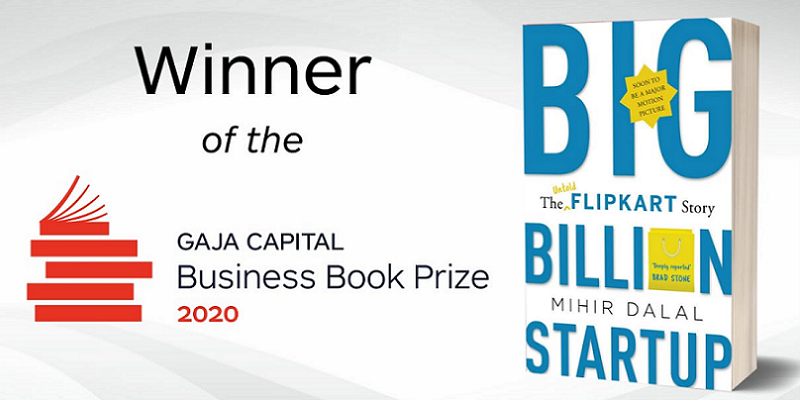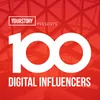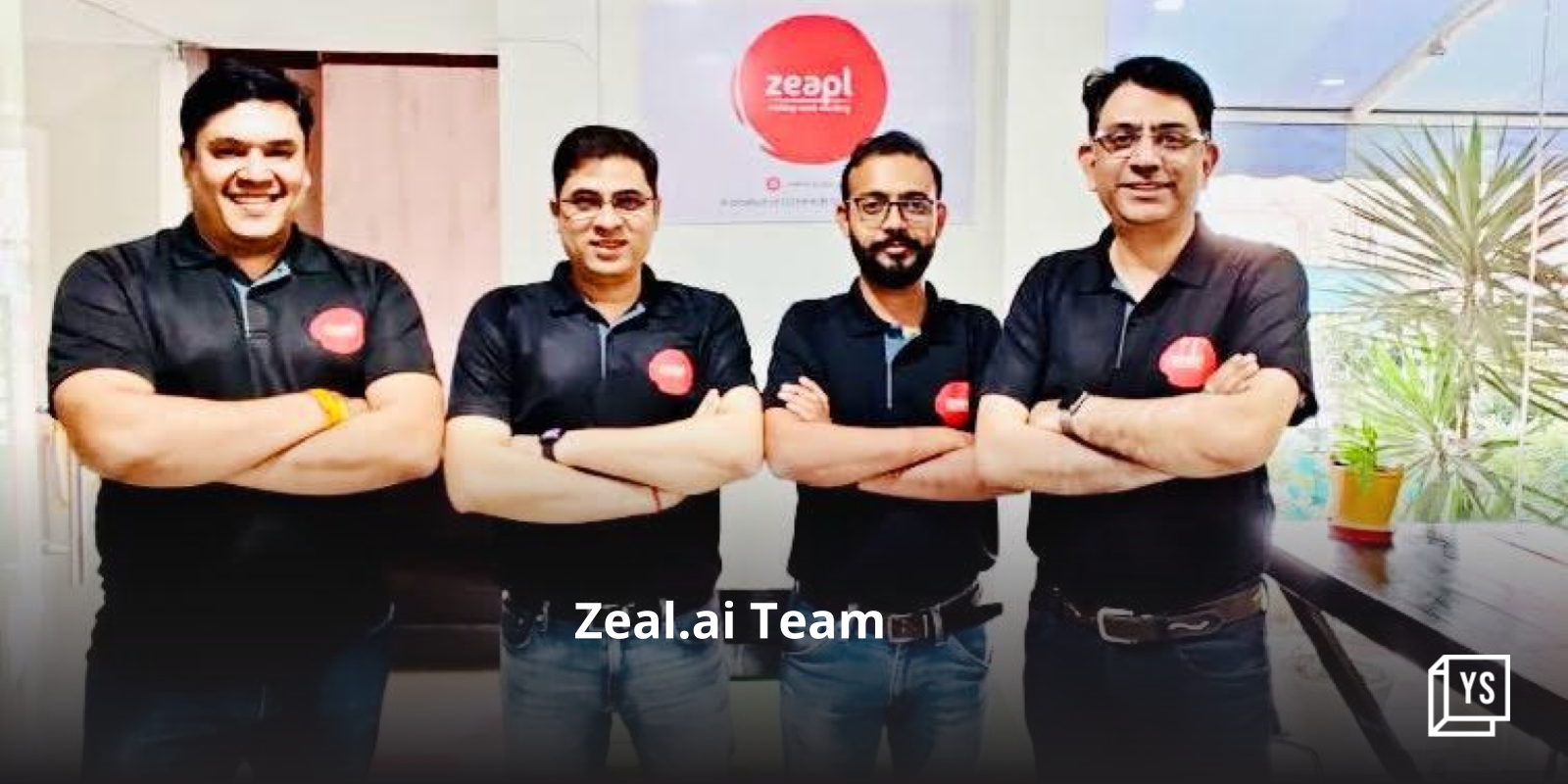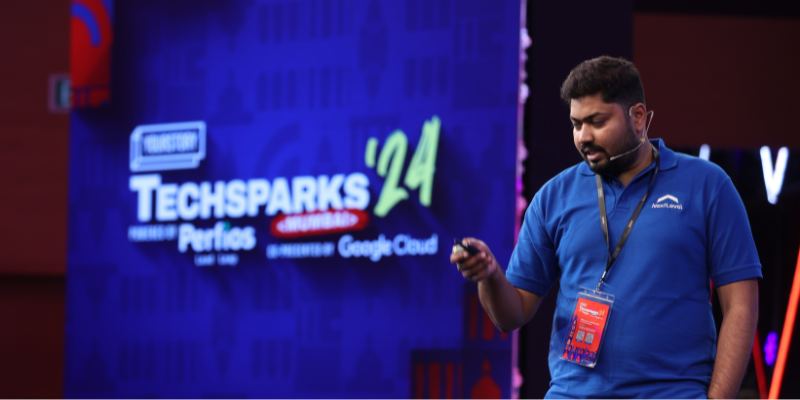Mihir Dalal’s book on Flipkart wins another award – the Gaja Capital Business Book Prize of Rs 15 lakh
The book on Flipkart’s story by Mihir Dalal has won the CK Prahalad Best Business Book of the Year Award – as well as the annual Gaja Capital Business Book Prize.
The second annual Gaja Capital Business Book Prize has been awarded to Mihir Dalal’s Big Billion Startup: The Untold Flipkart Story. The winner was selected from a compelling shortlist of six books, and gets a purse of Rs 15 lakh.
Regarded as the biggest business book prize in the country, the award honours authors and their chronicles of India’s spirit of entrepreneurship.
“The Indian growth phenomenon is one of the great stories of the 21st century. It needs to be told,” says Gopal Jain, Co-Founder and Managing Partner, Gaja Capital (see my writeup on jury process and insights here).
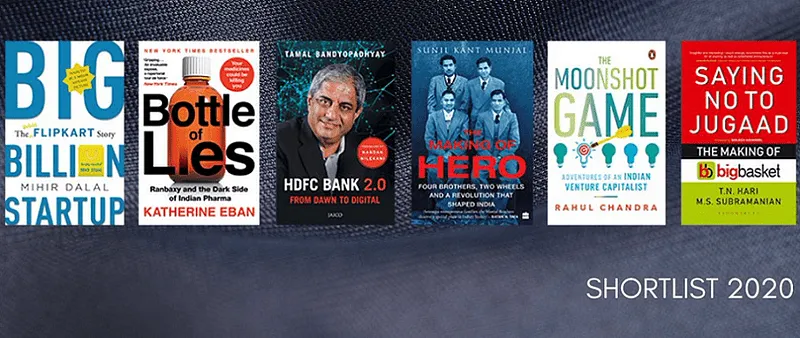
The 2020 shortlist includes Big Billion Startup: The Untold Flipkart Story (Mihir Dalal), Saying No to Jugaad: The Making of Bigbasket (TN Hari and MS Subramanian), The Moonshot Game: Adventures of an Indian Venture Capitalist (Rahul Chandra), The Making of Hero (Sunil Munjal), HDFC 2.0 (Tamal Bandyopadhyay), and Bottle of Lies: Ranbaxy and the Dark Side of Indian Pharma (Katherine Eban).
See also YourStory’s Book Review section with insights from over 285 titles, and our pick of Top 20 Author Interviews of 2020.
The jury was unanimous in choosing Big Billion Startup as the winner of the 2020 Prize.
“The Flipkart story reminds us that Indian entrepreneurs will forge their own independent paths of innovation serving a diverse and very demanding Indian consumer,” according to the jury statement announcing the award.
The next award will be given to books published between April 1, 2020, to March 31, 2021. Gaja Capital will invite nominations for the 2021 edition and come up with details on how to do so.
In this article, we share brief profiles of some of the books, along with excerpts of author interviews conducted by YourStory.
Big Billion Startup
Mihir Dalal grew up in Mumbai and currently lives in Bengaluru. His 300-page book on Flipkart makes for a fast-paced read, with over 20 pages of references and sources. Spanning two decades, the story is placed within the broader context of the rise of the internet economy and venture capital industry in India (see my author interview here).
Mihir paints a detailed picture of the Flipkart’s workings based on over 250 interviews, articles and documents. Founder passion, VC politics, and boardroom conflicts are portrayed along with the tensions of finding a balance between technology and product, growth and profitability, and local and global priorities.
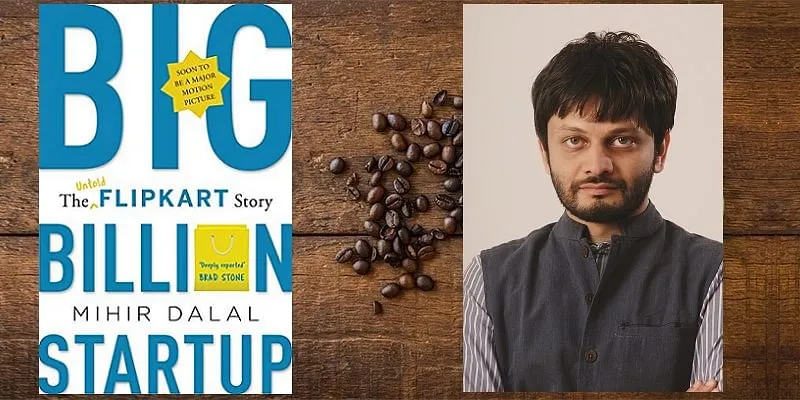
At the Bangalore Business Literature Festival 2020, Mihir's book won the CK Prahalad Best Business Book of the Year Award (see my writeup here). See also reviews of related books The Making of BigBasket and Failing to Succeed.
“A good business story faithfully and accurately recreates the real world of its subject. It doesn’t dumb down the financial and technical details but illuminates how those phenomena came into being,” Mihir explains.
“There are certain aspects in the book that I feel are worth highlighting. One, how technological determinism is a folly that many tech leaders are susceptible to. Two, how innovation happens in different forms,” he adds.
Transparency and growth-profit alignment are important for founder-investor relationships. “Eventually, the relationship comes down to whether the company is able to continually increase its valuation,” Mihir observes.
Bottle of Lies: Ranbaxy and the Dark Side of Indian Pharma
Bottle of Lies centres on the story of a courageous whistleblower, Dinesh Thakur, explains author Katherine Eban. “He risked his own life and that of his family to bring Ranbaxy to justice, and he did it on behalf of the world’s poorest patients, whom he would never meet,” she says.
“That is a kind of leadership that we rarely see. I think books can tell that kind of story better than any other medium,” according to Katherine.
“The story was such a vast jigsaw puzzle, set across four continents, and at times the reporting seemed impossibly difficult. So to simply finish felt like a miracle,” Katherine recalls. The book project took her 10 years to complete; she did not have a foreign bureau or colleagues or sources abroad.
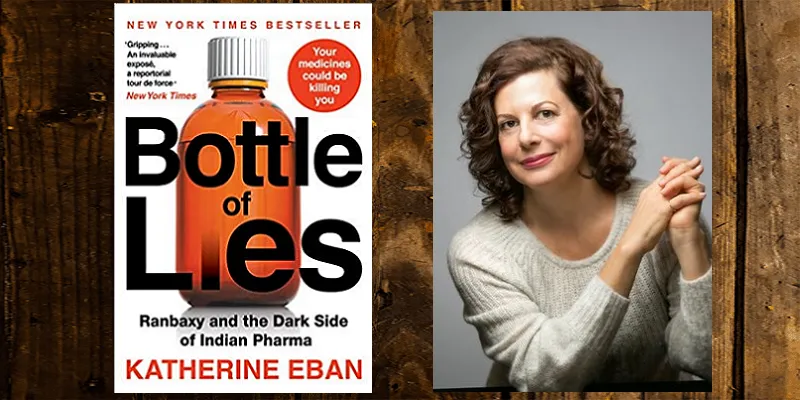
Two months before the paperback came out, coronavirus struck. “COVID-19 has really placed a red flashing light over everything I wrote about: the need for pharmaceutical integrity, an independent drug supply, and an ethical approach to the distribution of medicine,” Katherine explains.
A good business book must have characters that readers care about. “The good guys on a mission, the bad guys on the take, the detectives, and the potential victims — without that, why read? I followed those stories,” she adds.
“As well, I asked the question: what’s at stake? Why does this narrative matter? And of course, when one talks about generics, it’s a matter of life and death,” Katherine emphasises. Such books can help guide any classroom discussion about corporate ethics as well.
“Some have said that my book is critical of India. But in fact, the hero of my book is Indian; my sources are Indian. I have been contacted by so many Indian readers, grateful for my reporting effort,” Katherine proudly says.
She adds that she is a big animal lover, and is glad there are many Indian organisations doing remarkable rescue work. “I have also promised my children that I would take them to India, once the pandemic abates. So I would plan a visit. I have a dream of going to see the tigers in Madhya Pradesh,” Katherine signs off.
The Making of Bigbasket
TN Hari wears multiple hats: author, angel investor, mentor, and advisor to startups and accelerators. He is also Head HR at Bigbasket, and his six books include Saying No to Jugaad: The Making of Bigbasket (see my book review here). His other titles are Cut the Crap and Jargon (co-authored with YourStory founder Shradha Sharma – see book review).
Launched in 2011, Bigbasket has carved a unique space for itself in the business of grocery delivery in India, expanding to a range of other categories as well. The 15 chapters in the book span 170 pages (including eight pages of photographs), and are a practical blend of storytelling and business tips in various steps of the startup journey.
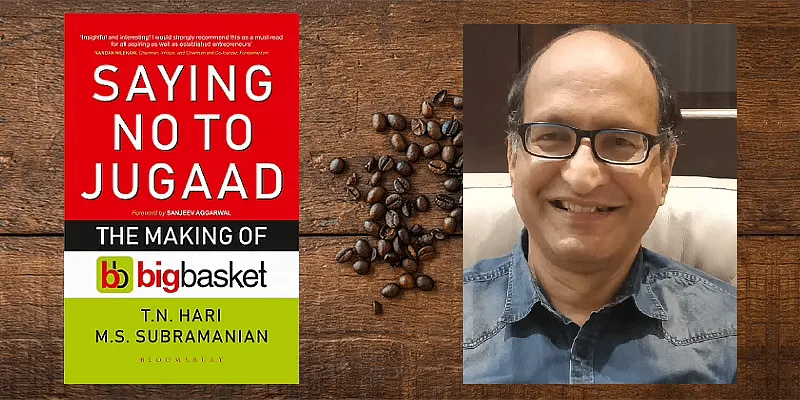
“A good business book has to tell a good story/stories. The stories have to be drawn from real life, have to be credible, interesting, and should carry powerful lessons,” Hari explains (see the full author interview here).
“The beauty of a book is that it tells a complete story in one place,” he adds. “A great book is about great storytelling. You need to observe people and listen to their stories with empathy and respect. You can write really well if you develop this habit,” Hari advises aspiring authors.
The Making of Hero
The business saga of the ‘band of brothers’ who withstood challenges right from the turbulence of Partition is well captured in the book, The Making of Hero: Four Brothers, Two Wheels and a Revolution that Shaped India. It documents the journey of the Hero Group, written by Sunil Kant Munjal, the company’s chairman (see my book review and author interview).
The 12 chapters span 220 pages, and are a compelling blend of storytelling, family saga, and business history. There also 20 pages of photographs reflecting key personalities and milestones.
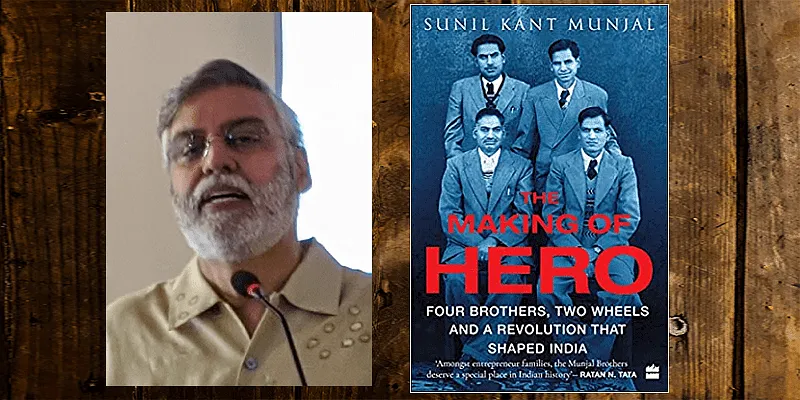
“There is a saying that life can only be lived forward, but only understood backwards. Immersing myself in my family’s roots, and those of Independent India during the research was the most fulfilling part of writing this book,” Sunil explains.
“A good business story must have a strong human element. Places and people must be well drawn out so that readers can relate to them,” he says. "The book must be rich in anecdotes, incidents, and interesting conversations. Finally, the reader should be free to come to his or her own conclusions,” Sunil adds.
He advises aspiring entrepreneurs to invest in talent and in like-minded people who share their vision. “They must be willing to unlearn, relearn, and be open-minded about the future. They must never get used to success, since nothing ever grows in the comfort zone,” he urges.
HDFC 2.0
Tamal Bandyopadhyay is the author of six books, including HDFC 2.0 From Dawn to Digital. He has also been a bank advisor, and his other books are From Lehman to Demonetisation; Bandhan: The Making of a Bank; Sahara: The Untold Story; Pandemonium: The Great Indian Banking Tragedy; and A Bank for the Buck.
“This is a wonderful story. This bank, the largest in the private sector, is a child of economic liberalisation. In many ways, it is different from other banks,” Tamal describes (see full author interview here).
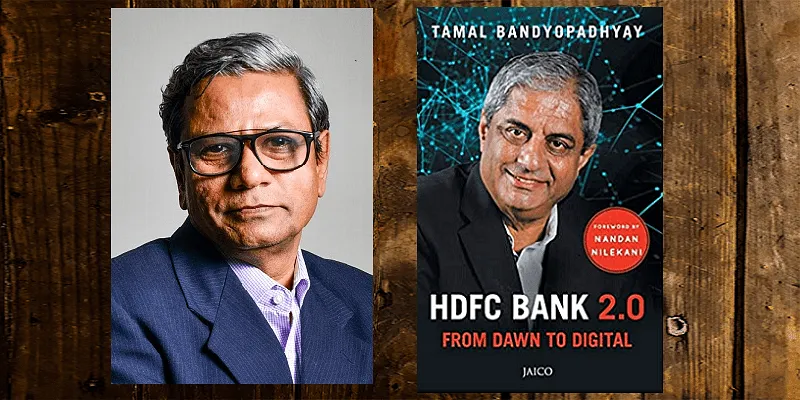
“This is also a story of entrepreneurship,” he adds. “It is a testimony to what new India can do – what can happen when passion for excellence merges with high corporate governance,” Tamal says.
He advises aspiring authors to have a strong focus on storytelling. “Even great research cannot make a book worth reading unless we tell the story well. Business books must be read by non-business people. This is possible only when the writers believe in simplicity,” he signs off.
Edited by Saheli Sen Gupta






